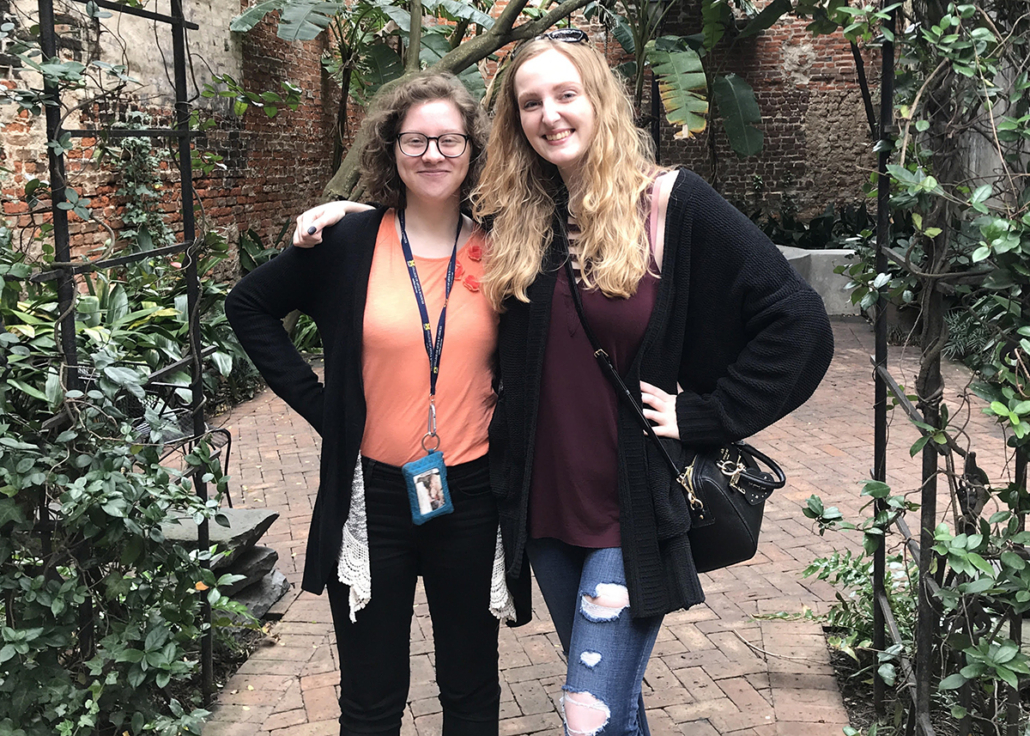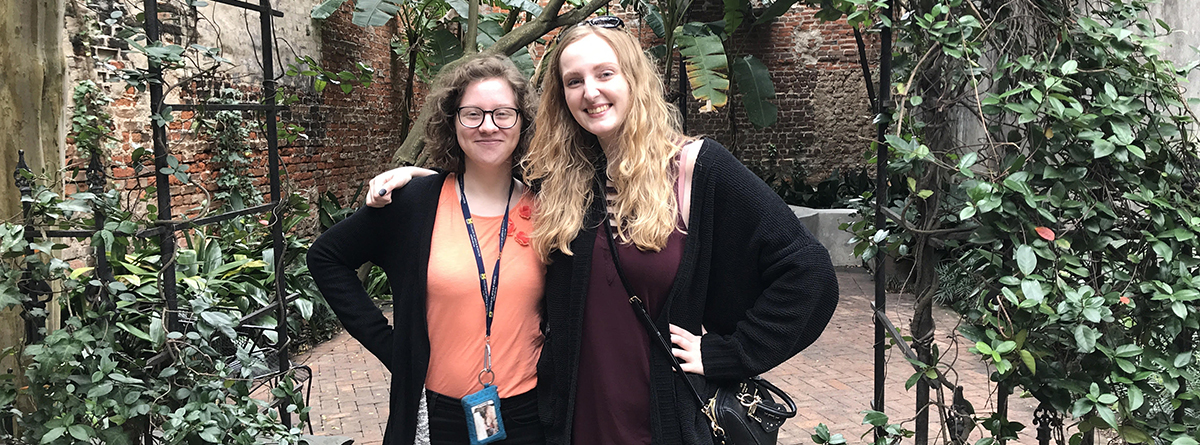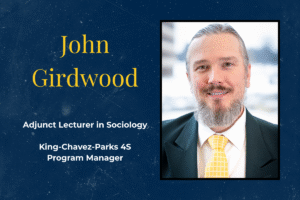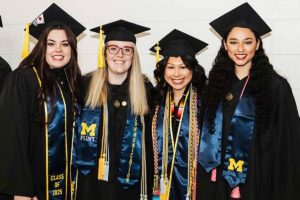The police lineup is a familiar scene to anyone who has watched a detective drama or true crime documentary. A group of suspects are brought into a room with a one-way mirror and the eyewitness picks out the perpetrator. Open-and-shut case, right?
Research suggests otherwise. A study conducted by a team from the UM-Flint Department of Psychology, led by Assistant Professor Peter Molinaro and including undergraduates Sabrina Dougherty and Dahlia Kassel, supports a growing area of study – one that shows that eyewitness testimony is often unreliable.
An Appearance Change Instruction (ACI) is a seemingly innocuous and straightforward statement given by law enforcement before suspects are brought in. “The individual may not appear as they did initially because features such as head and facial hair are subject to change.” While this instruction is meant to increase the number of accurate identifications, the UM-Flint research backs up previous work that states the opposite: ACI is not a productive instruction because it increases false identification rates.

Dougherty and Kassel, both in their final semester as UM-Flint psychology undergraduates, joined Molinaro’s lab as Research Assistants close to a year ago. Their work on this research culminated when they presented at the American Psychology-Law Society (APLS) on March 5-7 in New Orleans, Louisiana.
“It was a monumental experience—to go to a national platform and present research with a team that has worked together for so long,” Dougherty explains. “And we were also able to connect with other people in the field—professors, directors, graduate students who can share their own experiences. It’s something that I am so proud to have done in my undergraduate years.”

With graduation just months away, Dougherty and Kassel are now looking toward the next steps in their academic and professional careers. Dougherty is debating between graduate school and non-profit work, while Kassel is already applying for PhD programs in clinical psychology. She believes experiences like working on research and presenting at APLS will set her apart from other applicants.
“It’s so competitive to get into a PhD program and I think presenting at such a prominent national conference gives us both a competitive edge,” Kassel says. “I think it’s great that UM-Flint gave us an opportunity to be part of a research lab and that was already a big advantage, but attending this conference and being able to network was even more impactful.”
Dougherty and Kassel were awarded the Fran Frazier Travel Scholarship in addition to funds directly from the Department of Psychology to help them attend the conference. It’s just another example of the full support that motivated students at UM-Flint can receive.
“I have no idea how I would have made it to New Orleans if it weren’t for the scholarships I received—I am so thankful. We might not have had this opportunity at a larger college or one that doesn’t have the culture that the University of Michigan-Flint does,” Dougherty says.
If you’re interested in having experiences like Kassel and Dougherty, start your application or request more information.





